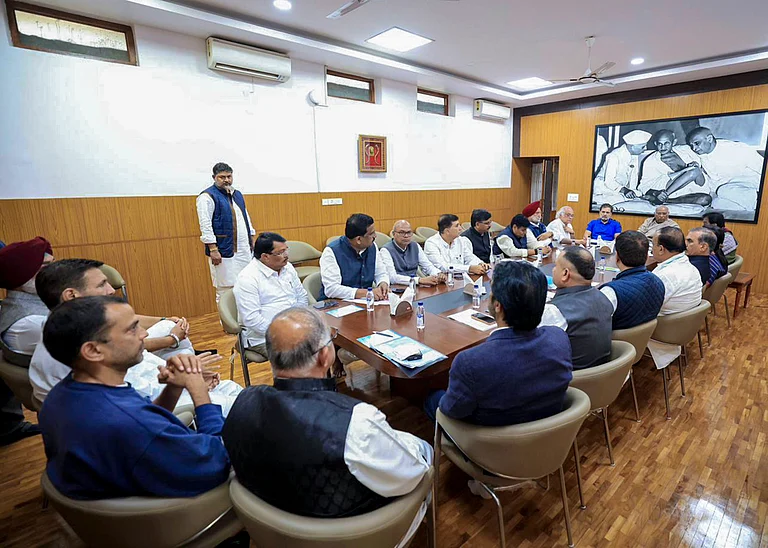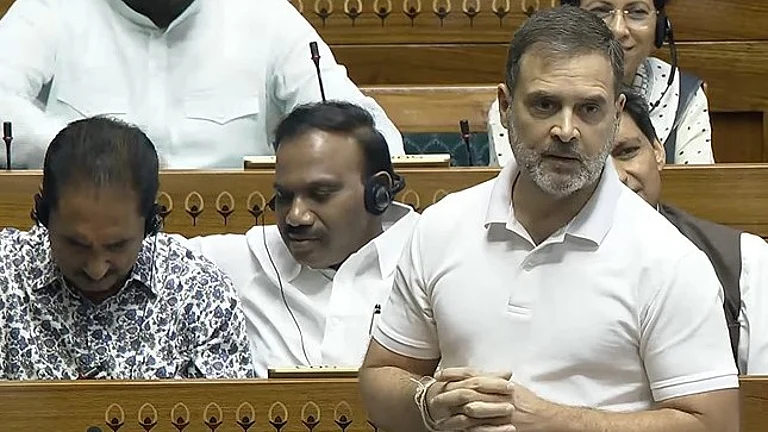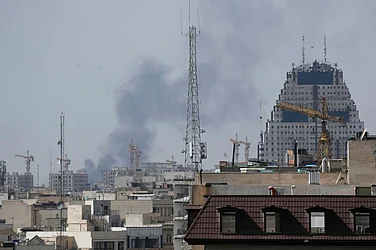The high-stakes battle for the 2024 Lok Sabha elections is underway across India. But in the eastern-most tip of the northeastern state of Nagaland, there is no election fervour. In fact, on April 19, when voting took place in the first phase in 102 seats—including the lone Lok Sabha constituency in Nagaland—six districts in the eastern part of the state allegedly resisted voting following a call for a poll boycott by the Eastern Nagaland People’s Organisation (ENPO).
The civil society organisation that represents the instincts of the tribes historically inhabiting eastern Nagaland has issued a call to “abstain” from voting in any Legislative Assembly or Lok Sabha elections until the Union government agrees to the creation of Frontier Nagaland Territory, a separate autonomous state or region within Nagaland.
The six districts that abstained from voting are Tuensang, Mon, Kiphire, Longleng, Noklak, and Shamator.
A similar incident occurred last year as well when the eastern Naga tribes called for a poll boycott during the state assembly elections. The ENPO members have since had several meetings with the Ministry of Home Affairs (MHA) over the creation of a separate unit, tentatively named the “Frontier Nagaland Territory”.
In February this year, tribal and village heads, and civil society organisations passed a resolution across the six districts of Eastern Nagaland, reaffirming the call for boycotting polls until the demand for Eastern Nagaland was met. Nungsanglemba Chang, the president of Chang Khulei Setshang—the apex tribal body of the Chang community in Tuensang—says that the resolution reflects a long-standing demand. “The Eastern Naga tribes have been demanding ‘Frontier Nagaland’, an autonomous unit or state within the state of Nagaland with a separate legislature and executive with financial powers,” he adds.
Explaining the reason for abstaining from voting, Chang states that people in the region made a voluntary decision and that the ENPO did not stop anyone from voting. “There is anger among locals against the government of India and the MHA which, despite assurances, has so far failed to act on the Eastern Nagaland demand,” he says.
YP Angam of Longleng, who has been associated with the ENPO and is the former president of the Phom Peoples Council, states that the move to boycott polls is not undemocratic. “The right to vote also includes the right to not vote. The government should realise that voting is a right for us, but receiving our vote is a privilege for them. It is our vote that makes the government,” says Angam.
HA Hongnao Konyak, the Konyak Union vice-president, says that the call for boycotting elections had been effective last year, with the MHA promising to respond to the demand. Union Minister Amit Shah even visited parts of Eastern Nagaland to negotiate with the tribal leaders. But no substantial move in the direction of the creation of Frontier Nagaland has been made since then.
Why do Eastern Nagas want a separate “state”?
Eastern Naga tribes inhabit the remote, hilly regions of Nagaland with the easternmost regions like Mon bordering Myanmar in the east of the state. The eastern Naga tribes include the Konyaks—who live in Mon and were known for being “headhunters” even in recent decades—the Phoms, the Changs, the Khiamniungans, the Yimchungrus and the Sangtams.
These tribal groups with many sub-tribes are located across six districts in Eastern Nagaland which are comparatively underdeveloped as opposed to the state’s Western part, which includes low-lying urban centres like the capital city of Kohima.
Eastern Nagas claim that due to better connectivity with the rest of the country and higher levels of English education thanks to the influence of Christianity across the state, Western tribes have claimed a lion’s share of the state’s development and also enjoyed higher socio-political autonomy and agent.
Angam explains that unlike the Western Naga tribes who were ruled by the British and later by the Assam government, most eastern districts had always remained ‘non-administrated’. This, perhaps, explains the history of the ‘backwardness’ of Eastern Nagas.
Unlike the western districts, the British never directly ruled in the eastern ones. It was only after the independence of India that the latter came under formal governance of any kind. Chang explains that in the imperial era, there were only three districts in Nagaland—Kohima, Mokokchung and Tuensang. While Kohima and Mokokchung were under the British administration, the eastern district of Tuensang was not. While the arrival of Christianity in both western and eastern districts led to a similar trajectory of tribes transitioning from animism and pagan worship to the worship of Christ and the Bible, those in the east claim that the region did not get the benefits of British administration like trade, commerce or formal educational infrastructure.
Eastern Nagas make up 30 per cent of the state’s population and send 20 of the 60 MLAs who make up the Nagaland Legislative Assembly.
While the exact voter turnout in Nagaland on April 19 is as yet unavailable, the move has raised concerns with the Chief Electoral Office (CEO) Vyasan R raising concerns over the law and order situation of the state. Sources within the ENPO, however, state that no force was asserted on their part to ensure the near-zero voting.
Earlier, acting on the BJP’s complaint, the State's Chief Electoral Officer had issued a warning to the Congress’ candidate in Nagaland, S Supongmeren Jamir, against allegedly appealing to “communal feelings” of voters in the state, a day ahead of polls. Sources claim that the BJP had lent support to the Eastern Nagaland issue last year in a bid to sway Eastern Naga votes in its favour during the Assembly Elections. But some like a veteran Western Naga journalist (who refuses to be named) in Mokukchong feel that the support for Eastern Nagaland from the Centre is a tacit move to break up Naga solidarity for the cause of “Greater Nagalim”, a separate homeland for all Naga people with its own flag and constitution. The demand has previously led to violence and prolonged militancy in the hill state. It was only in 2015 that The Naga Peace Accord was signed on August 3 between the Government of India and the National Socialist Council of Nagaland (NSCN) to end the insurgency in the state of Nagaland in Northeast India.























